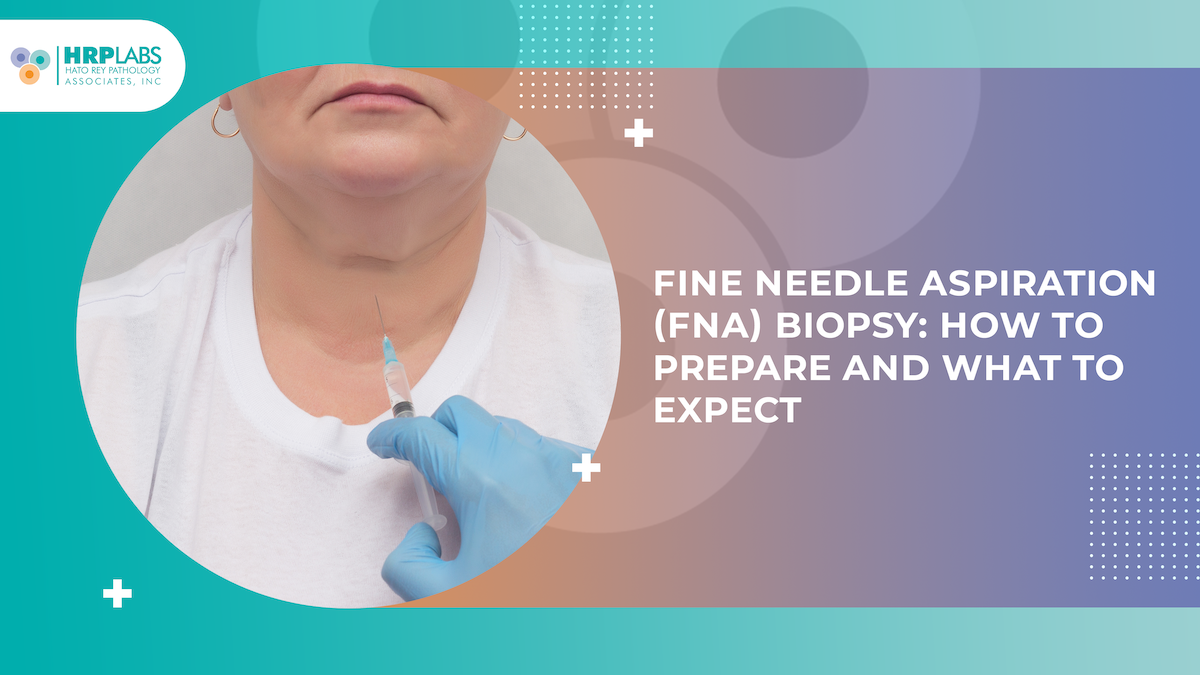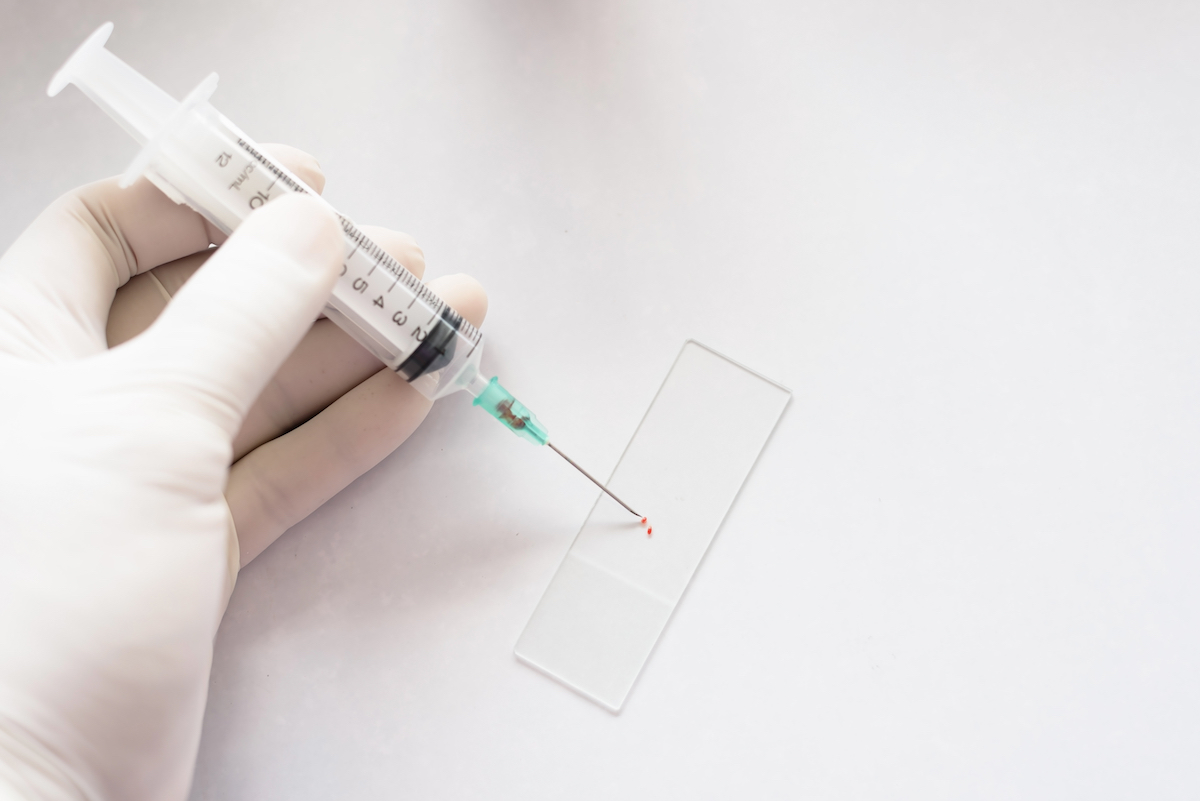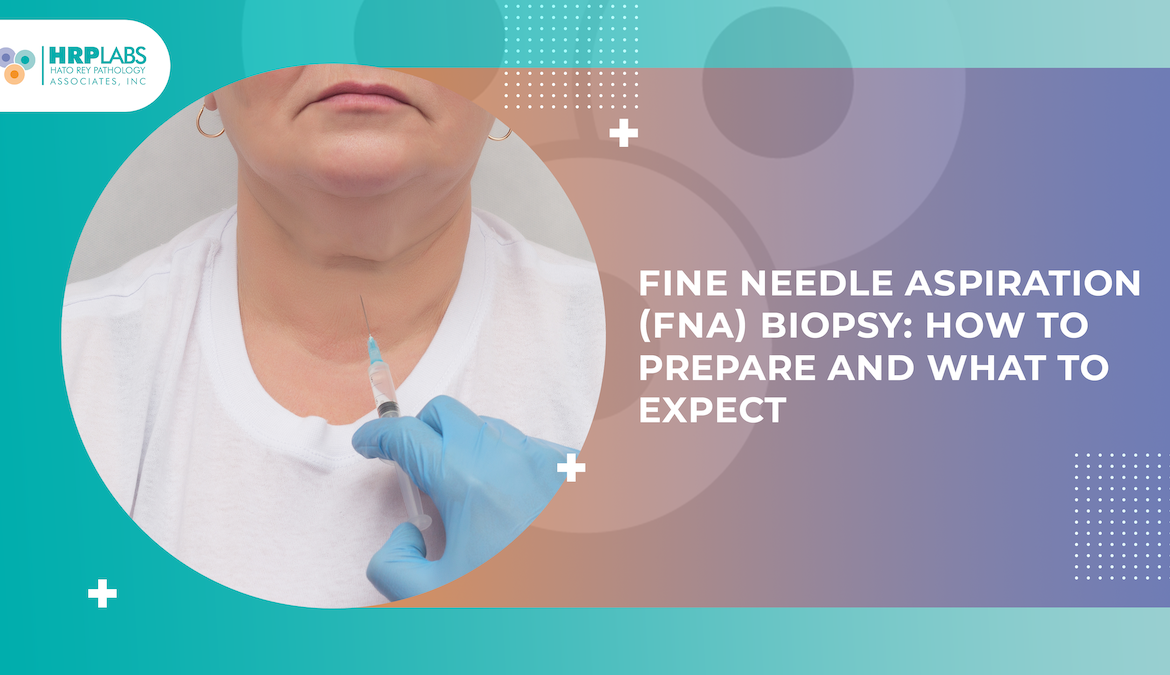
Most types of cancer can only be definitively diagnosed by a biopsy. For this reason, to check if an area of the body has cancer or another serious condition, your doctor may recommend a biopsy. This might cause some fear; however, there is nothing to worry about. A biopsy is a procedure in which a sample of tissue or cells is collected from an area of the body of concern for examination. There are several types of biopsies, such as needle biopsy, surgical biopsy, bone marrow biopsy, endoscopic biopsy, and skin biopsy. Some biopsies may be more invasive than others, so they may require more recovery time. In this article, we will focus on a type of percutaneous tissue biopsy, known as a Fine Needle Aspiration Biopsy, or FNA.
Percutaneous Tissue Biopsy
Percutaneous tissue biopsies or needle biopsies are procedures performed by inserting a special needle through the skin. These types of biopsies are often used on suspicious areas that the doctor can feel through the skin, such as lumps and/or enlarged lymph nodes. When combined with an imaging procedure (such as sonography), a needle biopsy can be used to remove cells from an area that cannot be felt through the skin. Needle biopsy procedures include:
- Single Fine Needle Aspiration (FNA) biopsy
- Image-guided Fine Needle Aspiration (FNA) biopsy
- Core Needle Biopsy

What is FNA?
Fine Needle Aspiration Biopsy (FNA) is a type of percutaneous biopsy that is safe, reliable, accurate, and painless. This type of procedure is quick and straightforward, so it does not require sedation, special preparation, or hospitalization. FNA is one of the least invasive diagnostic methods that exist, since the needle used is narrow and smaller than the one used in to draw blood in labs. To perform this biopsy, the pathologist will insert the very thin, hollow needle through your skin into the concerning area; the syringe connected to the needle will suck up a small sample of cells or liquid that will proceed to be analyzed.
At HRP Labs, we are pioneers of the FNA technique in Puerto Rico. Our certified pathologists perform this procedure using an ultrasound machine that helps guide the needle to the correct location. This procedure has an accuracy of 95%, which makes it a reliable method when it comes to knowing if a nodule is benign or malignant. This procedure is used to examine:
- Thyroid nodules:
During the procedure, you may feel some pressure on your neck from the ultrasound machine’s probe and needle. You will be asked to remain as still as possible and avoid coughing, talking, or swallowing during the biopsy. Usually, each pass lasts between 5 and 10 seconds. - Superficial nodules:
If the area to be biopsied can be felt, the needle can be guided into that area while palpating. - Lymph nodes:
Fine needle biopsy is one of the most widely used exams to screen an enlarged lymph node. This is due to its simplicity and ability to obtain a sample for additional studies, such as flow cytometry. - Breast nodules:
Although the gold standard for making a diagnosis of breast tissue is core needle biopsy, your doctor may recommend using the fine needle technique to evaluate nodules or lesions with a low probability of malignancy on imaging studies or to drain cysts.
What to do before and after the procedure and what to expect?
Since this procedure is simple, fast, and does not require hospitalization, you will not need to be accompanied to perform it. You should wear comfortable clothing to easily expose the area that will be examined, and should not be wearing jewelry or accessories. You can also eat before getting this procedure. In most cases, it takes about 10 minutes or less to complete the process.
Although aftercare instructions vary depending on the area that was tested, normal daily activities can usually be resumed. Since the needle is narrow, there will be no scarring in the examined area; however, the area may be sore and tender for a day or two. For this, you can take over-the-counter medications, such as acetaminophen, or simply apply ice to reduce discomfort. You may also have mild swelling after FNA. If so, place cold compresses (such as an ice pack or a cold cloth) on the area for 20 minutes to help reduce swelling. After your procedure, you will not need to follow any special diet; You will be able to eat and drink as usual.
NOTE: If the discomfort or inflammation becomes more serious, you should visit your doctor or the nearest emergency room.
Once the pathologist evaluates and diagnoses your case, the result will be sent to your doctor, as he is the right specialist to guide you on your diagnosis.
At HRP Labs, we have pathologists specialized in the Fine Needle Aspiration technique. Contact Us! Telephones: (787) 765-7320 and (787) 758-3220. Email: customerservice2@hrplabs.com.

